Normal Good Citizenship Worksheets for Ages 3-6
6 filtered results
-
From - To
Explore our "Normal Good Citizenship Worksheets for Ages 3-6," designed to introduce young learners to the fundamentals of being a good citizen. These engaging worksheets help foster essential skills, including sharing, kindness, and respect for others. Ideal for early education, our activities encourage kids to understand their role in their community through fun illustrations and interactive tasks. Each worksheet promotes critical thinking and social-emotional development in a playful way. Perfect for teachers and parents alike, these resources lay the foundation for responsible, empathetic future citizens. Start your child's journey toward good citizenship today with our easy-to-use worksheets!
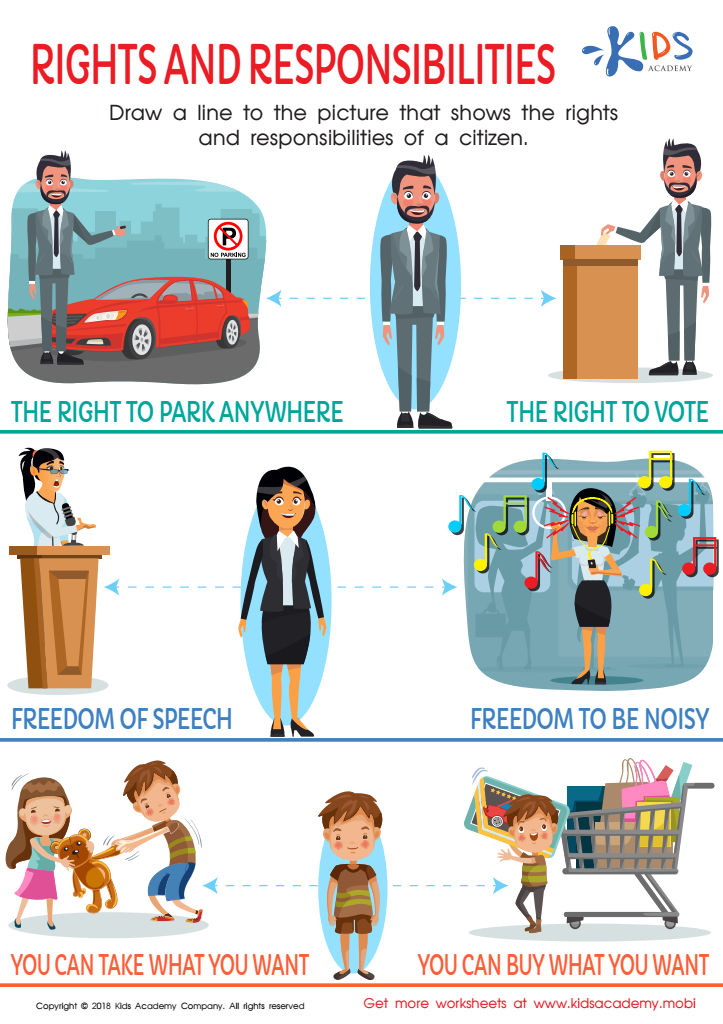

Rights and Responsibilities Worksheet
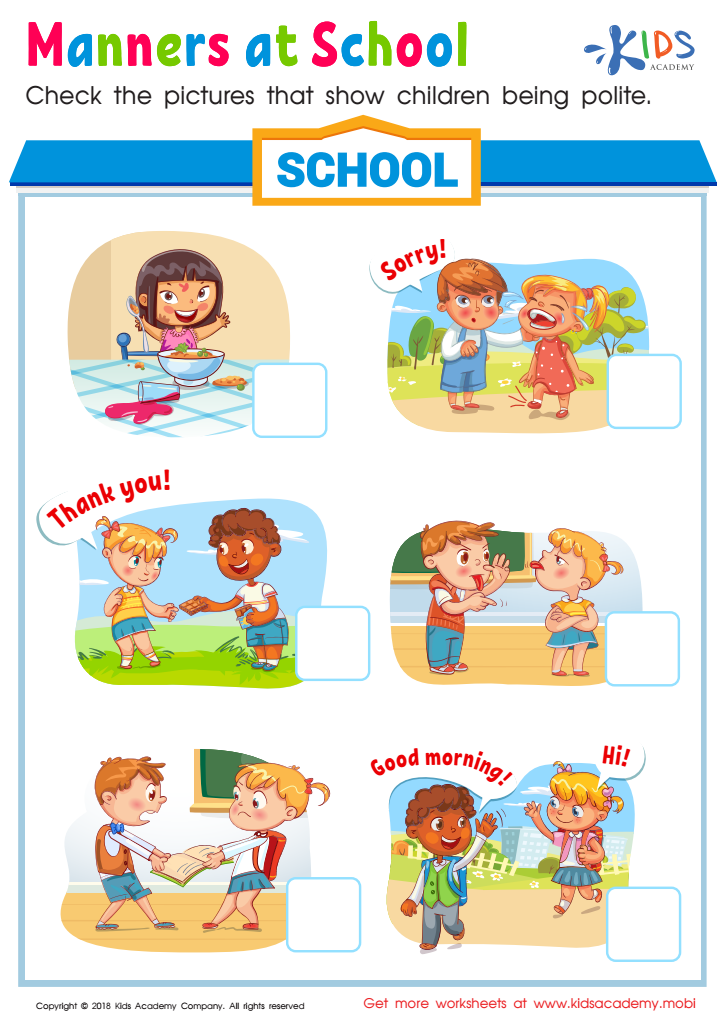

Manners at School Worksheet
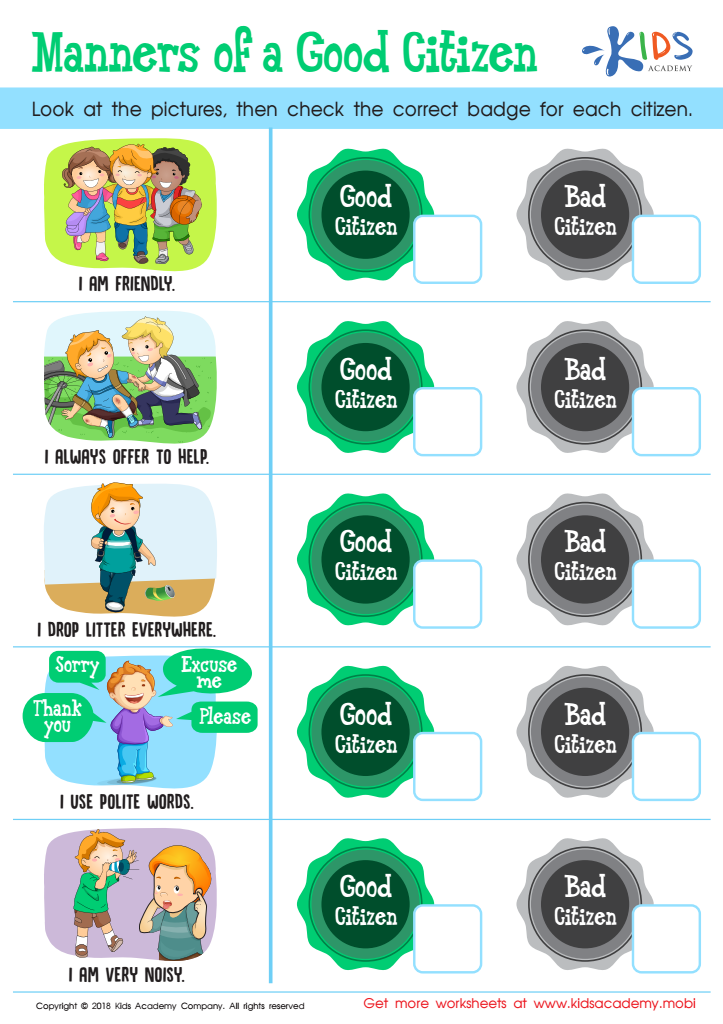

Manners of a Good Citizen Worksheet
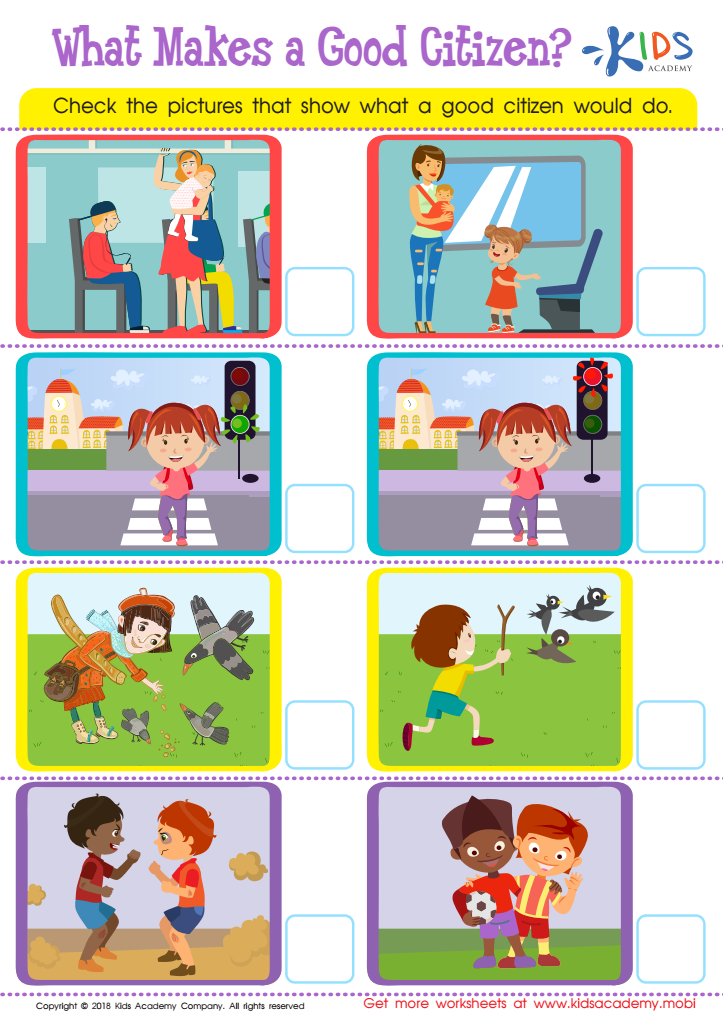

What Makes a Good Citizen? Worksheet
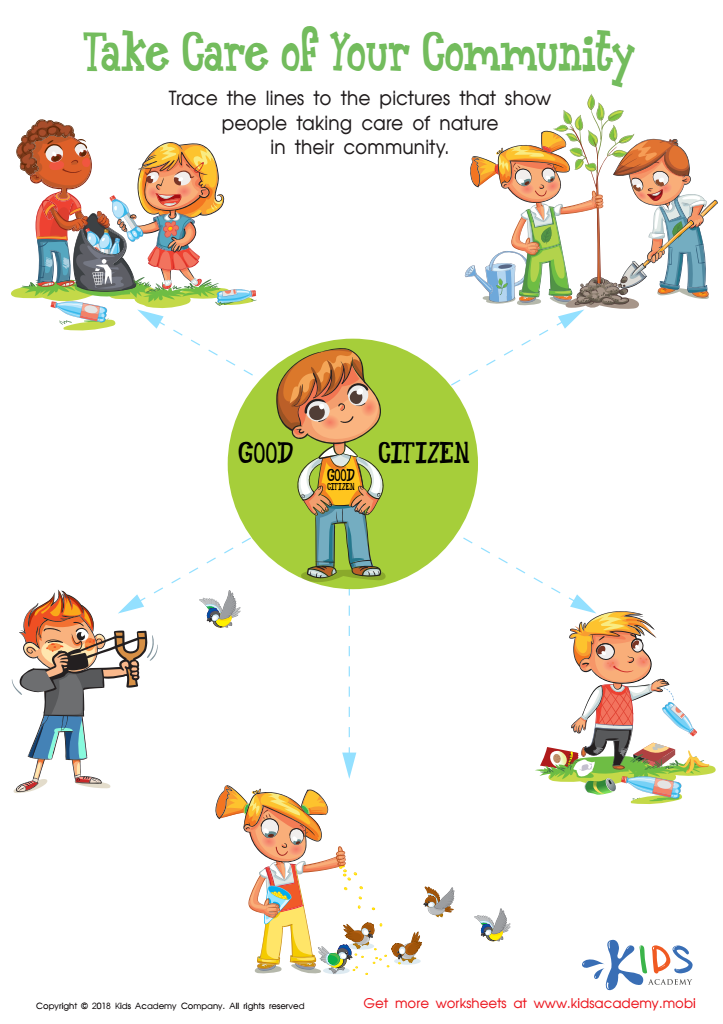

Take Care of your Community Worksheet
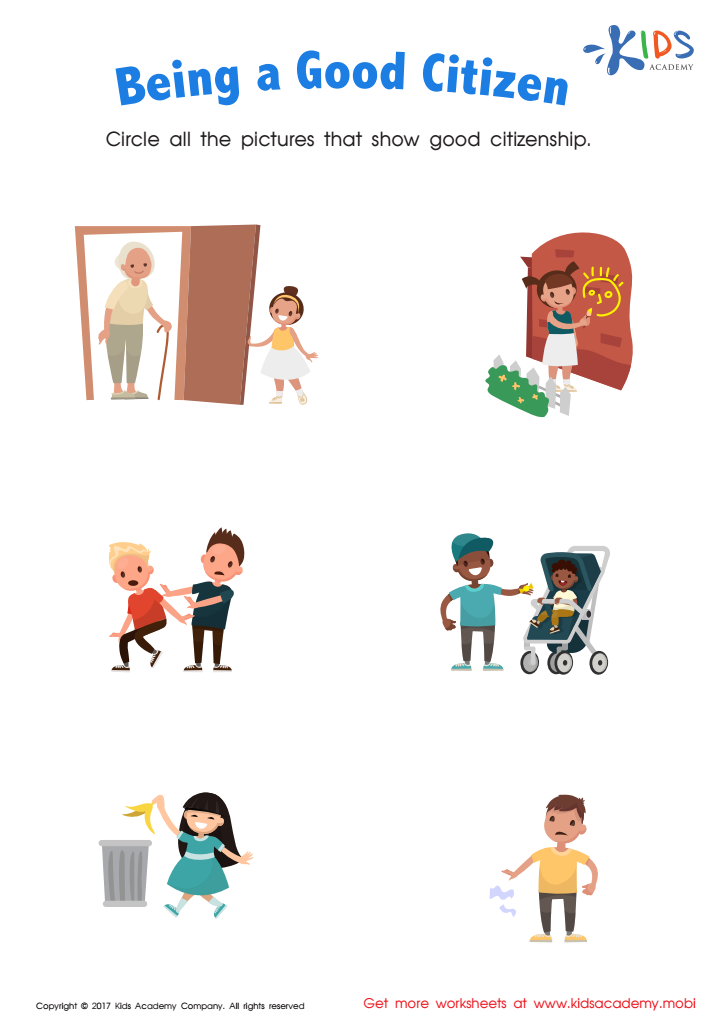

Being a Good Citizen Printable
Normal Good Citizenship for children aged 3-6 lays the foundation for their social, emotional, and ethical development. During these formative years, children are naturally curious and impressionable, making it crucial for parents and teachers to instill values such as respect, empathy, cooperation, and responsibility.
Promoting good citizenship at this age helps children learn to navigate social interactions, understand the importance of fairness, and appreciate diversity. Engaging in activities that encourage sharing, teamwork, and communication fosters a sense of community and belonging. Children who practice these skills are more likely to become conscientious members of society as they grow.
Additionally, early experiences with citizenship can enhance emotional intelligence. Children learn to recognize emotions in themselves and others, which leads to improved relationships. Educators and parents play a vital role in modeling and reinforcing positive behaviors, ultimately shaping children's attitudes toward civic engagement.
Investing time to teach young children about Normal Good Citizenship not only prepares them for future societal roles but also harnesses their potential to create inclusive, supportive environments. By cultivating these values early on, we influence not just individual children but the broader community, encouraging a generation of active, compassionate citizens.
 Assign to My Students
Assign to My Students













